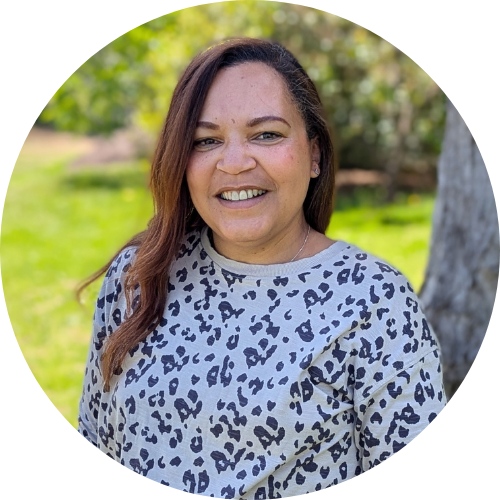African Overland Tours
https://www.facebook.com/AfricanOverlandTourscom/
https://www.instagram.com/african_overland_tours/
https://www.youtube.com/@africanoverlandtoursandsafaris
+27 (0) 21 448 0997
Customer Service
Worldwide
Budgeting is probably the hardest part of planning any holiday. We have made it easier by outlining what to keep in mind when creating your budget for an Overland Tour:
Tour Price + Local Payment or Activity Package (where appropriate) + Single Supplement (single travellers where appropriate)
It can be challenging to budget for an overland, but we will ensure you find the best tour to suit your tight budget.
We can also assist in booking international flights, airport transfers and any accommodation you may need. Just let us know your city of departure and when you prefer to arrive and depart.
There are many factors to consider when calculating your budget for an overland, so let’s take a closer look at all the things you should consider when drawing up your budget.
Your spending money, visas and optional activities will be paid in cash in the currency quoted (tour specific). Credit cards are only accepted at some establishments (mostly larger cities) and throughout South Africa.
While in Southern and East Africa, additional credit card surcharges from 5% to 8% may be charged when using your bank card. We would recommend only using your card in case of emergency.
ATMs are found throughout South Africa and other major towns and cities through Africa. However, you may not have access to an ATM for a few days, or they may be out of order. Please note that when drawing money from a local ATM, you will receive the cash in the local currency.

Visas are paid in US Dollars upon arrival at an international airport or border post. We therefore recommend you contact the relevant country Embassy / Consulate for confirmation on your particular requirements and the visa application process.
Local Payments must be paid in US Dollars cash or ZA Rand (South African Rand) as required by your chosen overland tour. Not all tours require a local payment, and only tours to Uganda with the Gorilla Trek Activity will require a permit.
Gorilla permits can be pre-paid (on select tours) and usually in US Dollars cash on tour departure. But rest assured, we will advise you about permits based on your chosen tour.
Spending money varies on your personal spending habits. While we cannot say for sure how much you may need, we would estimate USD10 to USD15 per person per day should be sufficient to cover snacks, drinks, souvenirs, internet café’s etc. Keep in mind you may spend more on some days and less on others.
Some meals are excluded on tour, allowing you to enjoy the taste of local cuisine from the local markets or restaurants. Light lunches consisting of a sandwich, fruit, snack and cold drink will cost below USD12. While a dinner of starter/desert and main meal with 2 drinks will cost an average of USD30 to USD40.
Optional activities vary based on your chosen overland tour and your personal preference. These will be listed as optional activities on your chosen tour, so add the costs of the activities you choose and see how this fits into your budget.
All your optional activities can be booked with your Tour Leader once you are on tour. Pay in cash – based on the currency in which they are quoted.
There are full banking facilities in major towns, these will be open during weekly business hours. Banks will exchange currency and facilitate credit card withdrawals.
Visa and Master Cards are preferential, as other cards may not be widely accepted.
Each country you visit in Africa has it’s own currency, so check which countries your tour travels through.
ZAR: South African Rand
N$D: Namibia: Namibian Dollar
BWP: Botswana Pula
USD/ $: United States Dollars used in Zimbabwe (the Zimbabwe Dollar Z$ has fallen away)
ZKW: Zambia: Zambian Kwacha
MWK: Malawi Kwatcha
MZN: Mozambique Meticas
TSH: Tanzania Shillings
KSH: Kenya Shillings
USH: Uganda Shillings
MAD: Moroccan Dirham
US Dollars, GB Sterling, Euro and select international currencies are used within Africa, with US Dollar being the most popular. You will find food, taxi, accommodation and optional activity prices are all quoted in US Dollars.
It is important to note that US Dollar cash notes must be issued POST 2005. No notes pre-dated are accepted due to fraud in East Africa. You can pre-order US Cash notes from your local bank or foreign exchange office prior to arriving in Africa.
We recommend you bring a combination of larger denominations (USD100 and USD50) to pay for your Local Payment and smaller denominations (USD50, UDS20, USD 10 and USD5) for spending money, visas and optional activities.
Tipping is customary in Africa as a gesture of thanks for good service. It is not mandatory, and the amount is entirely at your discretion. However, here are some general guidelines for a group tour with an overland guide and local guides:
Tipping Recommendations: Local Guides & Activity Providers
(Tip directly after service. Use local currency where practical, otherwise USD/ZAR where relevant.)
Practical Advice
You should also consider emergencies when looking at your budget for an overland adventure. Sometimes political or civil unrest and other circumstances beyond our control will mean the group has to make alternative travel plans. Therefore keep some extra cash on hand for these occasions.
Emergency cash stash will come in handy, which should be budgeted for separately. Usually US Dollars are the best to keep in cash.
Keep in mind that with most Travel Insurance policies – you need to cover the expense upfront and then claim from your insurance.
Starting from October 1st, 2024, the Zanzibar government will require all foreign travelers to purchase compulsory travel insurance. This insurance is provided exclusively by the Zanzibar Insurance Corporation (ZIC) and costs $44 per person. It’s valid for 92 days, covering the duration of most tourist visits. The information on this insurance is constantly changing and we advise that you keep an eye on the Visit Zanzibar site for more updates closer to your travels.
For more information, the ZIC has put together a set of FAQ’s which can help you understand the need for this mandatory insurance.

"*" indicates required fields





